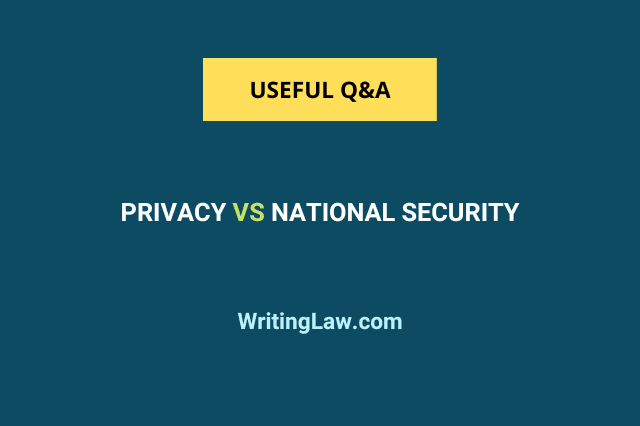
The concept of privacy and national security has been a subject of debate not just in India but throughout the world. In India, this debate has become more pronounced since the introduction of Aadhaar, a biometric identity system. However, concerns have been raised about the extent to which Aadhaar compromises the privacy of Indian citizens.
The debate is crucial because it involves balancing two fundamental values essential to modern society: individual rights and collective security.
This article will examine the debate on privacy vs national security in India and the challenges that policymakers face.
Meaning of Privacy
Privacy is a Fundamental Right that allows individuals to control their personal information and limit its access to others. It also includes the freedom to make decisions without interference from others.
Privacy is a fundamental human right, and the protection of individual autonomy, dignity, and independence depends much on the protection of privacy. It allows people to make life decisions without fear of unwanted surveillance.
Meaning of National Security
National security means the protection of a country’s citizens, territory, and interests from internal and external threats. It involves protecting the nation against foreseeable hazards and perils that could jeopardise its social, political, or economic stability.
National security is essential for a country’s and its citizens’ survival and well-being. It ensures the country is safe and protected from external and internal threats, such as terrorism, espionage, and cyber-attacks.
The Debate
The Indian Constitution recognises privacy as a basic right, and the government must preserve and protect it. However, national security is equally essential, and the government must take necessary measures to protect it as well. The challenge arises when the measures taken by the government to ensure national security violate an individual’s right to privacy.
The debate on privacy and national security in India came to the forefront when the government of India launched Aadhaar, a biometric identity system, with privacy activists raising concerns about the biometric data gathering that Aadhaar requires. Aadhaar was introduced to ensure that every Indian citizen had a unique identification number that could be used for various government services.
According to privacy activists, biometric data gathering threatens people’s privacy because it may be used for identity theft and other criminal activity. The government of India, on the other hand, argued that Aadhaar was necessary to combat fraud, corruption and terrorism and that the data collected was safe and secure and would be used only for some specific purposes.
The debate on privacy vs national security in India is not new and will likely continue as technology advances and develops. Finding a balance between privacy and national security is challenging for policymakers. There is no simple solution to the dilemma faced by policymakers in balancing the rights to personal privacy with national security issues. It requires a strong legal system in India that safeguards people’s right to their privacy while also enabling the government to take necessary actions to defend India’s national security.
Summing Up
Striking the right balance between privacy and national security is crucial for the well-being of a country and its citizens. It requires a balanced approach that considers the importance of both privacy and national security. Policymakers must work towards creating a legal system that protects individual privacy rights while also enabling the government to take necessary actions to safeguard national security. Only then can we ensure that individual privacy and national security are both protected.
Read Next:
1. Impact of Digital Technology on Domestic Violence
2. Formation of India’s Research and Analysis Wing (RAW) and Its Functions
- Understanding the Legislative Branch of the Indian Government - 6th May 2024
- Appointment, Oath, and Removal of Constitutional Posts in India - 28th April 2024
- Powers of Income Tax Authorities in India - 26th April 2024







